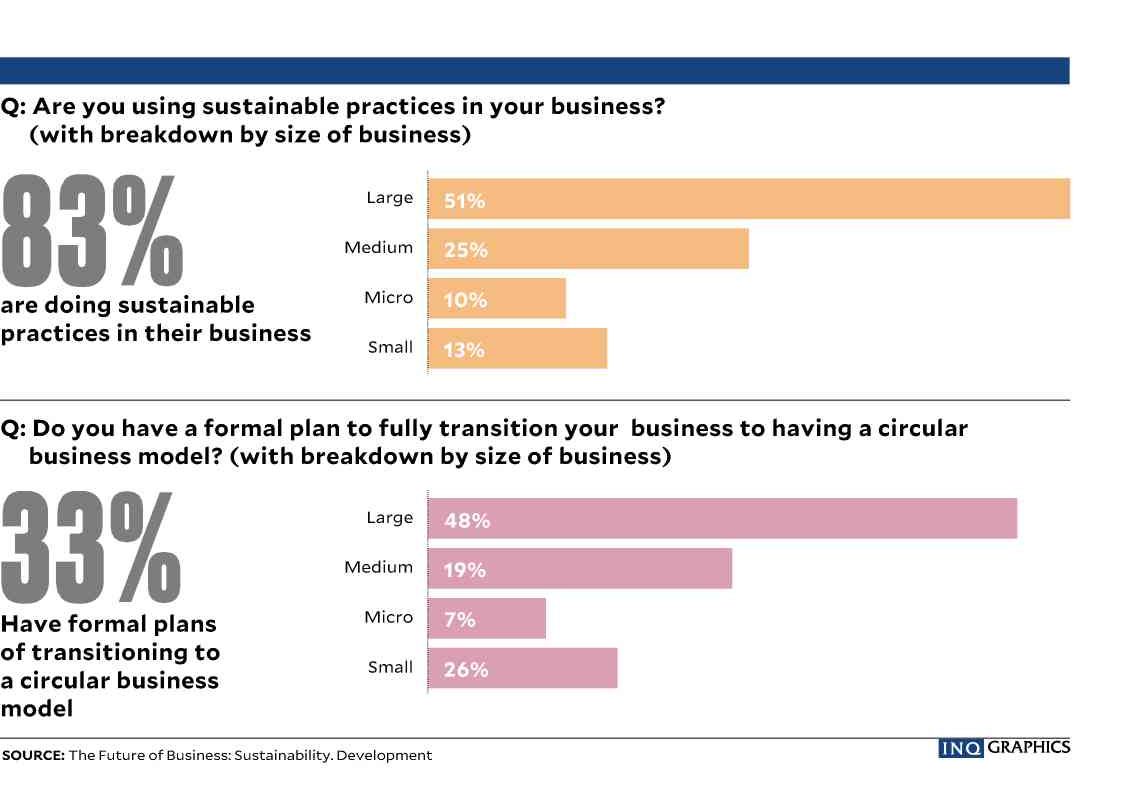Climate change, environmental damage top CEO concerns

“For sustainability to happen, leaders need to embrace it. For me, more than anything, sustainability is a leadership issue. The power comes from leaders,” says Alex Cabrera, PricewaterhouseCoopers (PwC) Philippines chair and senior partner. “If they make it happen, it will.”
PwC, together with the Management Association of the Philippines (MAP), released recently the report “The Future of Business: Sustainability. Development. Impact,” which details results of the 2019 survey of 127 CEOs in the Philippines, from a mix of large (50 percent), medium (27 percent), small (14 percent), and micro (9 percent) enterprises from various sectors “about their views on sustainability and the changes that they need to make to address the issues [businesses] are facing.”
According to the report, over 80 percent of CEOs identified climate change and environmental damage among the top threats to their organizations, along with geopolitical uncertainty (84 percent) and overregulation (82 percent).
With that in mind, 83 percent of respondents said they had adopted sustainable practices in their respective businesses.
Such practices include improving energy efficiency and lessening consumption (83 percent); recycling and reusing materials (71 percent); and upgrading waste collection processes (46 percent).
Article continues after this advertisementHowever, when asked about formal plans of transitioning to a “circular” business model that eliminated waste and the continual use of resources, only a third said they had such plans in place.
Article continues after this advertisementMoreover, only 44 percent said they measured and reported the financial impact of their sustainable practices, with most measuring only in terms of cost reductions or savings.
Participants identified a number of factors constraining them from adopting a circular business model: high transition costs (46 percent); inadequate technology (43 percent); economic viability of sustainable practices (41 percent); existing organizational culture (39 percent); upfront investment (36 percent); and lack of talent (30 percent).
“Transitioning to a circular business model is going to be a challenge in some places where there are no support services available,” says Cabrera. “The refurbishing of laptops, for instance—is there a service provider in the Philippines which refurbishes laptops instead of throwing them away?”
The good news is that, according to the survey, 80 percent of CEOs in the Philippines expect to change their production/service model in the next three to five years, to promote more sustainable practices.
Specifically, 71 percent said they planned to increase efficiency by consuming fewer natural resources and materials; 53 percent said they would look into other possible functions for their product; 43 percent said they would repair and maintain a defective product so it could be used with its original function; 39 percent said they would use discarded products or parts in a new product with a different function; and 38 percent said they would process materials to obtain the same quality.
These business leaders also identified urbanization, environmental issues, degrading ecosystems, changing consumer behavior, and disruptions in the supply and prices of raw materials as the top concerns that would drive companies to transition to a circular business model.
Cabrera also emphasized the critical role of legislation, suggesting that government “incentivize companies that provide ‘circular’ services, either for refurbishing or recycling, so that there is a go-to company where corporations can rely on for sustainable business practices, or prolong the use of materials.”
“Second, I would suggest that the SEC pass a rule or two, to have everybody, not just the listed companies, report in their financial statements their sustainable practices, carbon emission [levels], or their impact on the environment,” he adds.
While costly in the beginning, Cabrera also says that they will soon become less so if more organizations are required to implement them.
“Good growth is not just about profit, but long-term existence,” he says.